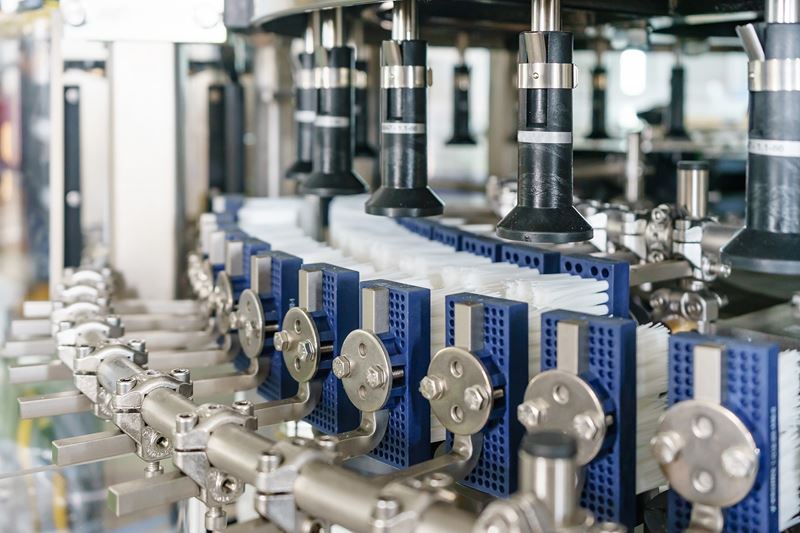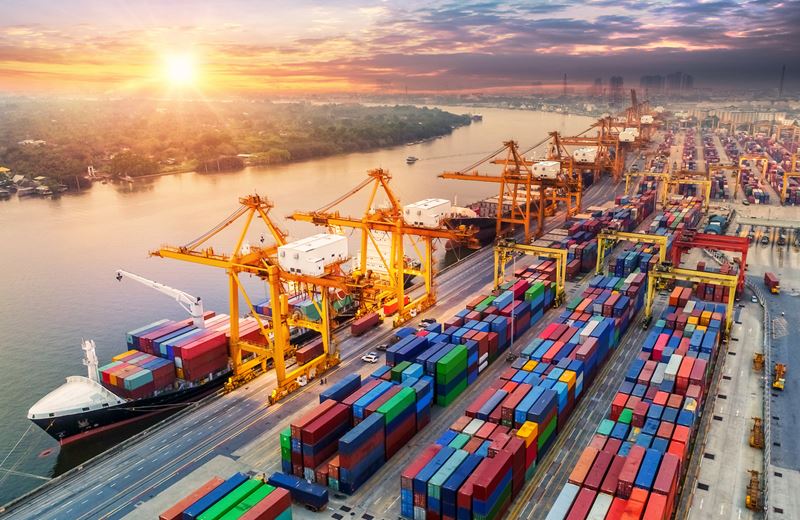Is deglobalization the answer to supply chain woes?
Is deglobalization the answer to supply chain woes?
When it comes to trade, the world’s interconnectedness has many advantages, from improving efficiency and increasing global product availability, to fostering economic growth. However, ongoing supply chain problems, Russia’s invasion of Ukraine, and rising geopolitical tensions have put the vulnerabilities of global trade in the spotlight.1
For businesses, today’s uncertain climate has led to growing sentiment towards “nearshoring” or “deglobalization.” For manufacturers, that means sourcing from domestic suppliers and being less dependent on foreign suppliers. A June 2022 survey found that 40% of American brands have included nearshoring in their sourcing strategies for 2023, and 50% of European manufacturers indicated their desire to nearshore supply chains this year.2
That’s not to say the world is retreating from globalization. As Barclays notes, deglobalization is not happening uniformly across the planet and, in the U.S. and Europe, the net trend is still towards globalization. However, given the environment, corporations and governments are reconsidering external dependencies and looking closer to home for more resilient growth models.3
What’s the sentiment among Canadian manufacturers? A 2022 survey by Canadian Manufacturers & Exporters (CME) found that 90% of manufacturers in Canada are facing supply chain disruptions, with over 60% indicating the disruptions are major or severe. More than a quarter (28%) of manufacturers said they are likely to relocate or scale up production in Canada to mitigate supply chain bottlenecks, with the availability and cost of labour named as the biggest hurdles in doing so.4
Kyle Meadus, Underwriting Manager at Sovereign Insurance, notes that many issues faced by the manufacturing industry were just heightened by the COVID-19 pandemic.
“During the pandemic, there was concern that Canada relied too heavily on foreign partners and didn’t manufacture enough of our own goods,” he says. “When supply was minimal to none – think back to the shortage of children’s pain and fever medication, for example – shelves were bare and panic set in. So, these are some of the hurdles that will continue to happen if we continue to rely too heavily on other regions.”
Certainly, as the CME survey points out, cost is a barrier. “Manufacturing products in North America is expensive and there are other countries that produce goods more cost-effectively,” says Kyle. “In addition, our dollar impacts our buying power abroad. So, when we do manufacture products in Canada, the majority goes to our biggest trading partner – the United States. Ultimately, we don’t keep enough of our own goods because our weak dollar and strong demand leads to more lucrative opportunities outside of Canada.”
Although nearshoring or deglobalizing can come with a bigger price tag, finding alternate suppliers can help manufacturers build resilience when the next big disruption hits. Some additional advantages of deglobalization include reduced lead time, risk mitigation, faster shipping and increased sustainability efforts by reducing fossil fuels and pollution.5
Going forward, balance will be the key for manufacturers. “There will be a balance of identifying how we produce products within Canada and not being solely reliant on other countries to provide us certain goods,” says Kyle. “Manufacturers will need to identify suppliers and regions that will enable them to diversify to help ensure supply chains are resilient.”
For example, Kyle points to the “China-plus-one” strategy, in which companies avoid investing only in China and diversify their business operations and supply chains into other countries. “A Canadian manufacturer might find a supply partner in the U.S. or Mexico, for example, instead of solely relying on China.”
Wherever a manufacturer lands, they’ll have to ensure their insurance policies keep pace with the changing landscape. For example, Contingent Business Income insurance can help reimburse you for your loss of business income if your supply chain is disrupted because of physical loss or damage to property at one or more of your direct or indirect customers, suppliers, contract manufacturers, or contract service providers.
“If a part comes from another region that experiences a severe weather event, a manufacturer may have to stop production of their product,” says Kyle. For example, the 2011 earthquake in Japan crippled parts of the country’s auto supply chain. Such events can start a chain reaction to key part manufacturers that distribute to North America, which can shut down assembly lines, halt production and cause a disturbance in the overall global supply chain, explains Kyle. “In the supply chain, small things can turn into complex problems fairly quickly, so manufacturers have to protect themselves.”
Ultimately, brokers and their manufacturing clients must work together and maintain strong relationships. “The broker is the gateway to understanding the insured’s business, the products they’re manufacturing, and their coverage needs,” Kyle says. “For Sovereign, working hand-in-hand with brokers allows us to provide comprehensive insurance solutions tailored to the unique risks of the industry sector and the client’s business.”
Sources
1 McKinsey Global Institute, “The complication of concentration in global trade,” Jan. 12, 2023
2 Avison Young, “(De)globalization 3.0: 10 Trends for 2023”
3 Barclays, “Homecoming: The acceleration of deglobalization,” Sept. 28, 2022
4 Manufacturing Automation, “Survey: Nine of 10 Canadian manufacturers facing supply chain issues,” March 9, 2022
5 ERP Software Blog, “Why Manufacturers Are Embracing Deglobalization to Strengthen Their Supply Chains,” July 12, 2022



